Ort
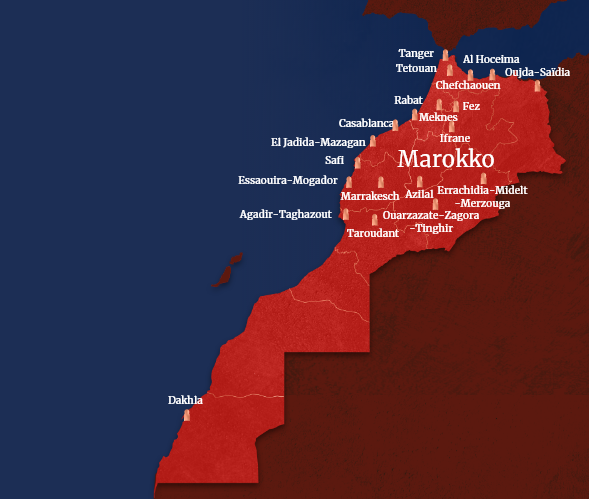

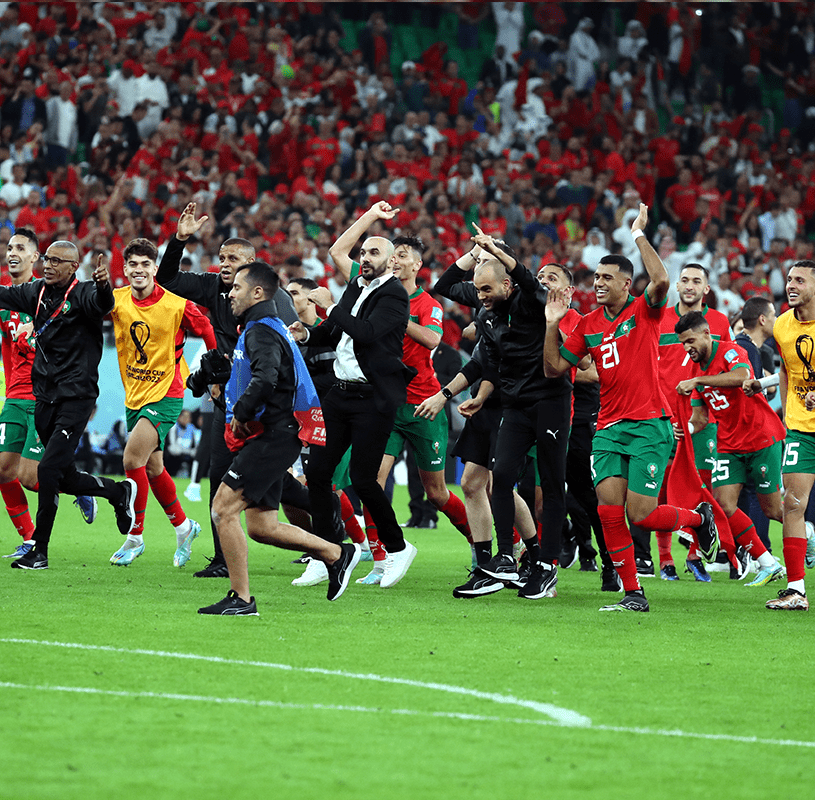

The Atlas Lions thrilled the football world during the 2022 World Cup in Qatar. Their historic achievement made Moroccans dream and united them around common values of sharing, joy and passion. Between Morocco and football, a story of love and challenges. A story that reminds us that nothing is impossible: We dream big.
Morocco, Kingdom of Light, has always shone in the world great sporting events. Thanks to the vision of His Majesty The King Mohammed VI, the efforts of the Royal Moroccan Football Federation, and the passion of the people, Moroccan football has always reserved for aficionados of the round ball moments of pure happiness, breathtaking moments.
Morocco has always been a source of inspiration for African football. A retrospective of exploits is in order:
In 1976, the Atlas Lions won the African Cup of Nations in Ethiopia.
In 1986, Morocco became the first African country to pass the first round of a World Cup, only to be eliminated by the German Mannschaft.
Morocco and its national clubs continued to make history. In 2013, Marrakech hosted another feat: the final of the Club World Cup between Raja of Casablanca and Bayern of Munich. A breathtaking match in which the Rajaouis outdid themselves and made history as the first African team to reach the final of this competition by beating prestigious clubs such as the Brazilian Atletico Mineiro of the famous player Ronaldinho.
In 2022, the Moroccan national team rewrote history, opening a new chapter for Arab and African football. Led by coach Walid Regragui, it was the first African nation to reach the semi-finals of the World Cup and to be part of the "Golden Square" of this great sporting event.
Moroccan football is brilliant in every way. By winning the intercontinental tournament in Thailand in 2022, the Futsal team has risen to 8th place in the world with a record of two African Championships (2016, 2020) and two Arab Nations Championships (2021, 2022). The beach soccer team reached the semi-finals of the African Cup of Nations and the Atlas Lionesses were crowned African vice-champions in 2022, securing their ticket to the World Cup in Australia in 2023.
Moroccan clubs have the most successful track record on the continent. Wydad Athletic Club (WAC) has won several titles in this sense: the African Champions Cup (1992, 2017, 2022) and the African Super Cup (2018). As African Champions, As African Champions, WAC celebrated its second participation in the Club World Cup 2023 organized in Morocco.
The success of Raja Club Athletic (RCA) is echoing throughout Africa. The Green Eagles have won several titles: the African Super Cup (2000), the African Champions Cup (1989, 1997, 1999) and the Arab Champions League (2006).
Also Moroccan fans at the 2022 World Cup have played a key role since the beginning of the World Cup and have been the "TWELFTH MAN" behind the Atlas Lions.
The Renaissance Sportive of Berkane (RSB), a historic club from the Oriental region, is multiplying its exploits. In 2020, the club won the African Football Confederation Cup and later repeated its feat in 2022. In the same year, it was crowned winner of the African Super Cup.
These achievements are the result of long-term work, led by the Royal Moroccan Football Federation (FRMF), which has invested in infrastructure, equipment and training centres, real nurseries of champions, heroes capable of meeting challenges and making the Moroccan people dream.
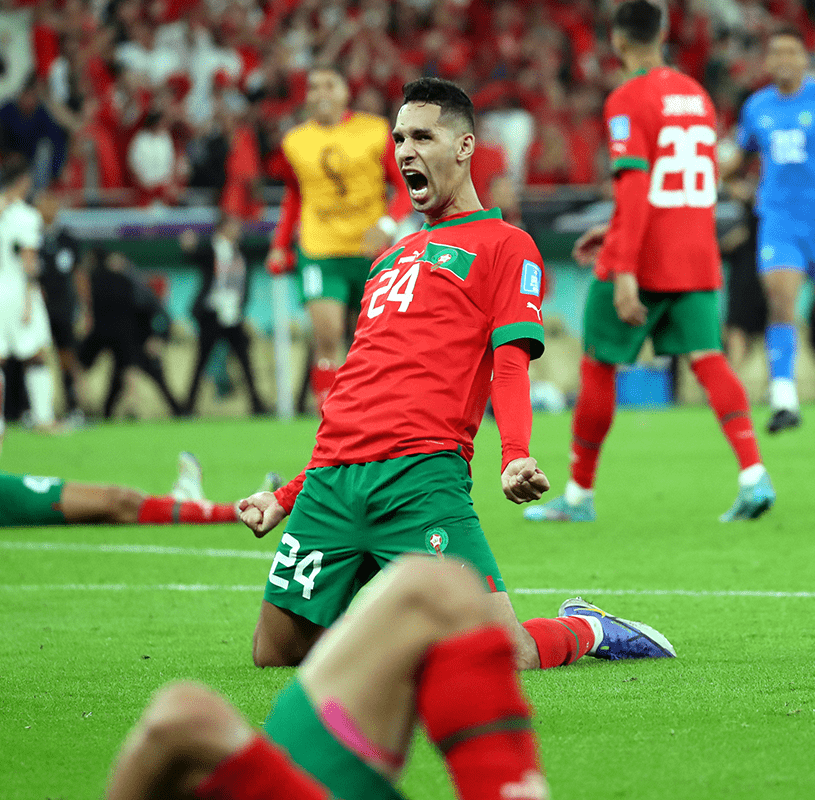
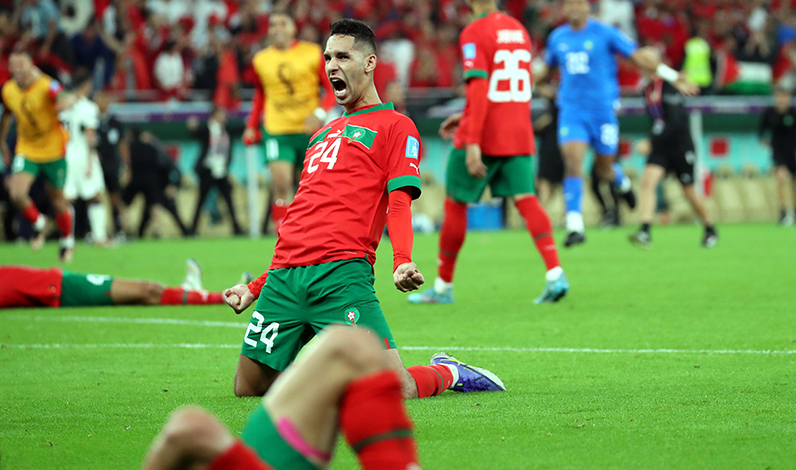
Morocco shone with a thousand lights. Billions of views, likes, shares on the virtual world, and 35 million Moroccans in the street, jubilant, shouting with joy, from Tangier to Lagouira. The heroic feat of the Atlas Lions at the 2022 World Cup in Qatar resonated throughout Morocco and internationally: kingdom of light, experience and magic.
From Marrakech, "between the Atlas mountains and the secret gardens" and 7th best city to visit in the world in 2022 according to the Time Out Index, to Chefchaouen, "the blue pearl of the north", while strolling through the meandering streets of the medina of Fez, "twelve centuries of history and craftsmanship", before reaching Ouarzazate, "the ultimate desert experience" and its beautiful kasbahs, witnesses of the ancestral history of a thousand-year-old country... To the sunrises of the dunes of Zagora and the destination of Dakhla, "the meeting of the desert with the sea".
All of Morocco, all Moroccans, vibrated, and the world with them, in a spontaneous and intense burst of euphoria.
The spectacular participation of the Moroccan team in the Qatar 2022 World Cup will remain forever in the annals of Moroccan football. Beyond the sporting achievement, the whole world discovered a country whose values were conveyed by its valiant Atlas Lions. Values of living together, fair play, joie de vivre and hospitality.
A radiant presence of Morocco on the international scene, and an invitation to come and visit and live the experience of a lifetime.
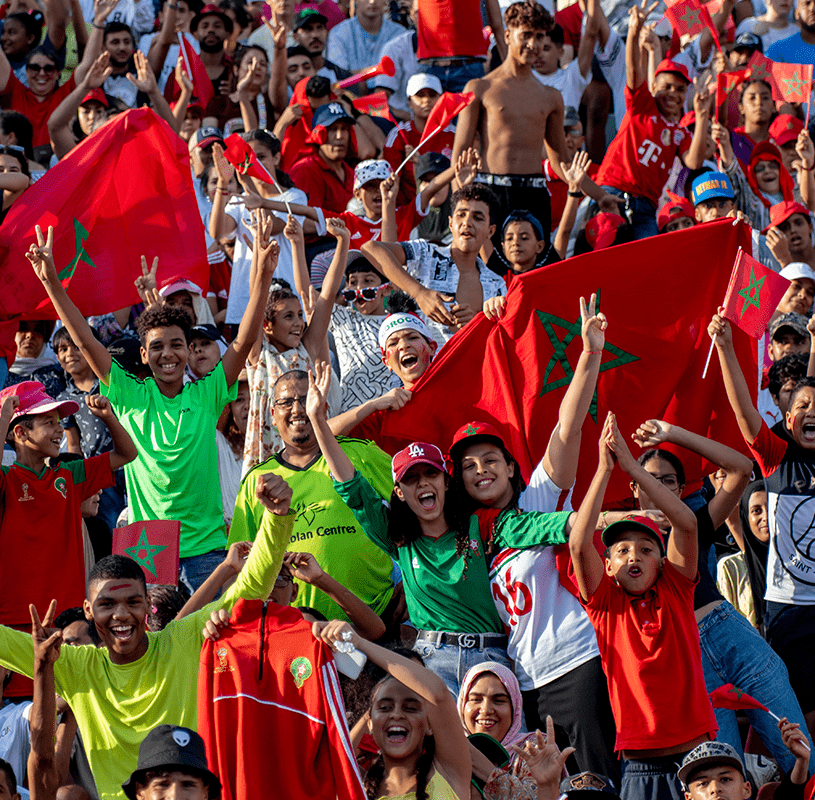
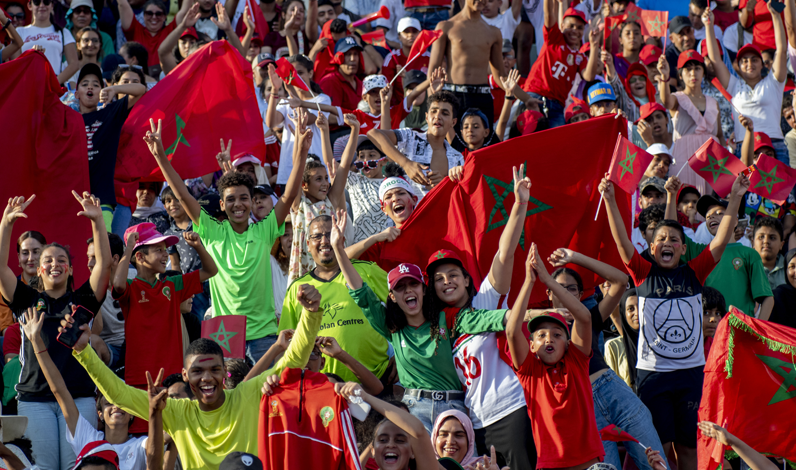
Thanks to the 2022 World Cup in Qatar, the world has discovered a people who are passionate about football. Thousands of Moroccan fans came to support their national team with all their heart: joy and pride were the watchwords of this grandiose event.
People of football: young, old, women and children, all share an unconditional love for the game. The Casablanca derby between WAC and Raja, the two biggest football clubs in Morocco, was a perfect example. It is a unique moment when time stands still in the country economic capital.
Land of football: The sublime beaches of Morocco, from the Mediterranean to the Atlantic, are the favourite playground of millions of football fans. Football is present everywhere, in the alleys of all Moroccan cities, in the villages and authentic douars, in the football clubs and academies, in the stadiums of international standards, in all homes and especially in the hearts of all Moroccans.
The warm welcome reserved by His Majesty The King Mohammed VI and by the people to the Heroes of the Nation who have honoured the Moroccan flag, reflects this communion around common values of passion, family, love and pride in belonging to this Kindgom of Light.
We are proud today to say that football is part of the intangible heritage of Morocco, a heritage that is constantly being renewed and modernised, a heritage that reveals the light that Morocco conceals and that tells each visitor the story of the epics of its Atlas Lions, transmitted from generation to generation.

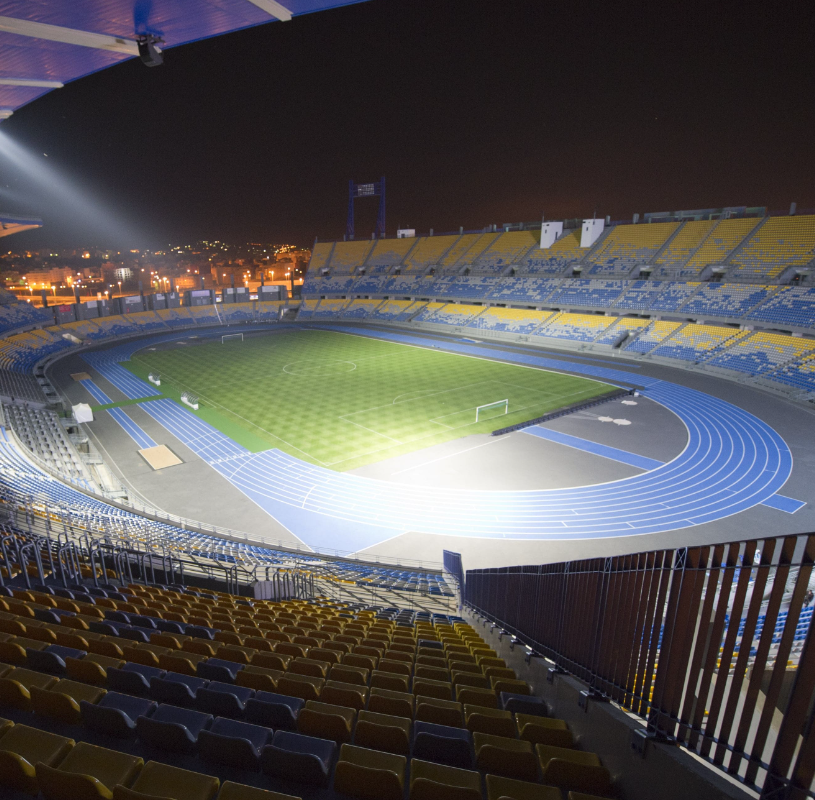
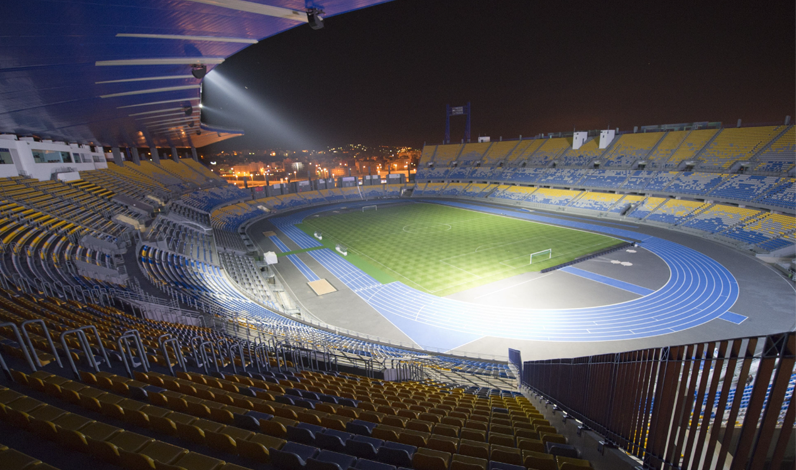
The exploits of the national team are not the result of chance. Under the aegis of His Majesty King Mohammed VI, Morocco has achieved a real increase in its sports infrastructure, especially football. The Mohammed VI Football Academy, inaugurated by the Sovereign in 2010, is one of the main components of this Royal vision whose objective is to propel the sports sector to the forefront. Equipped with world-class facilities, the Academy covers an area of 18 hectares. A veritable factory and nursery for great champions of the game, this infrastructure of excellence has given birth to high-level players, performing in renowned clubs at the national and international level. It joins other royal projects such as the Great Stadiums of Marrakech, Fez, Tangier, Agadir and Rabat. These stadiums are worthy of the largest infrastructures in the field and are equipped with the latest technologies and equipment. In 2008, SONARGES was created, with the objective of making these stadiums places of life, able to host any type of event, whether it be sporting, professional, cultural or artistic.
The local pitches are the crowning glory of this royal vision, the main focus of which is the promotion of sports. Launched in 2018, this large-scale project provides for the construction of 800 local pitches, hundreds of which have already been built, particularly in rural areas. Children, young people, men and women have been able to benefit from these modern infrastructures to practice their favourite sport: football.
If today Morocco has climbed into the top 4 of the world best teams, it is thanks to a proactive and visionary policy of His Majesty The King Mohammed VI. An ambitious approach which has also contributed to the development and influence of several tourist regions of the Kingdom.
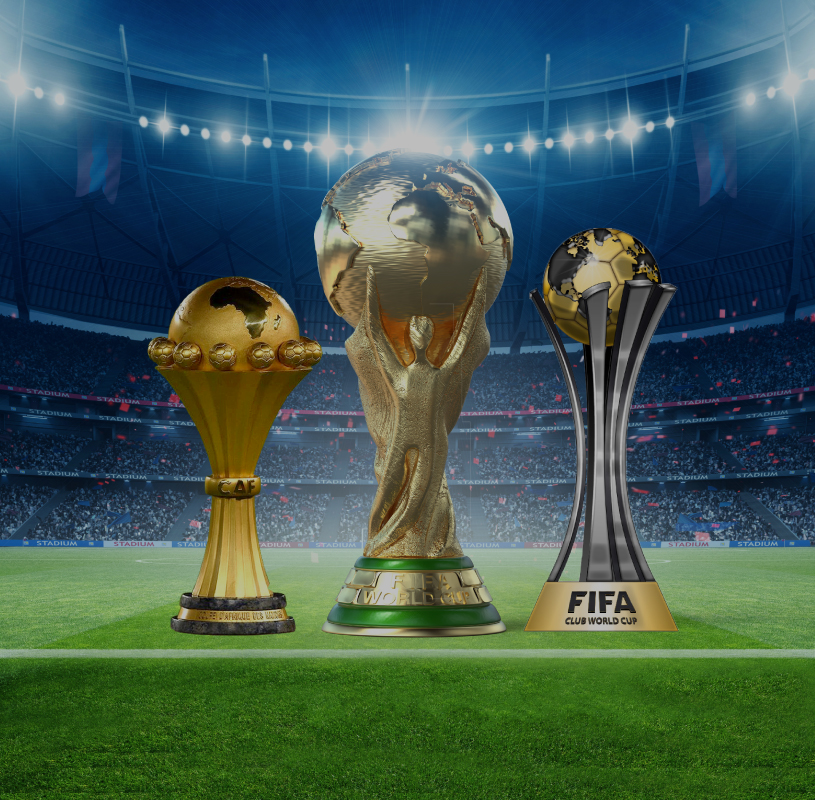
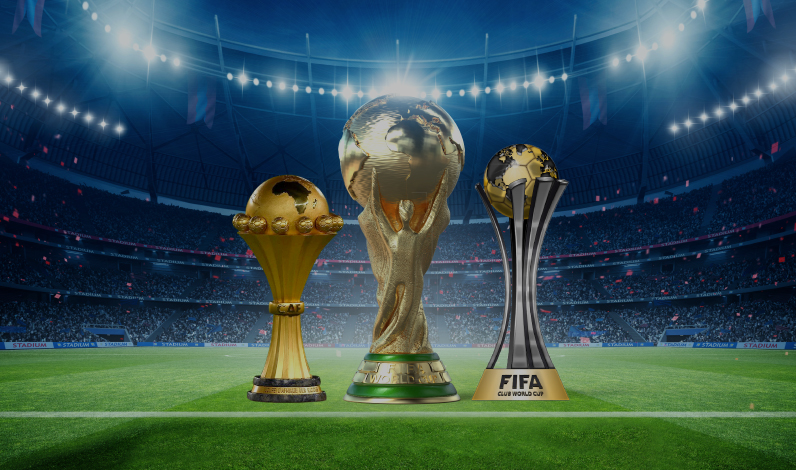
Nach der erfolgreichen Ausrichtung des Afrika-Cups 2025 erhebt sich Marokko nun als bedeutender Akteur auf der globalen Fußballbühne. Die gemeinsame Bewerbung mit Spanien und Portugal wurde von der FIFA für die Ausrichtung der Weltmeisterschaft 2030 ausgewählt. Die Fußballverbände von Marokko, Spanien und Portugal haben ihre Absicht bekundet, ein Turnier auszurichten, das "das Erbe der FIFA-Weltmeisterschaft stärkt, den Fußball entwickelt und weltweit einen bedeutenden Einfluss hat". Zusätzlich zur Ausrichtung der Klub-Weltmeisterschaft 2023, die in Bezug auf Organisation und Fußballbegeisterung ein großer Erfolg war, festigen diese beiden Initiativen die Position des Königreichs als bevorzugter Gastgeber für bedeutende globale Sportveranstaltungen. Marokko, mit nachgewiesener Expertise in der Organisation von Großveranstaltungen, hat auch massiv in menschliche und materielle Ressourcen für seine Infrastruktur investiert, einschließlich des Baubeginns des Stadions von Benslimane, eines der größten Stadien Afrikas, und der Entwicklung seines touristischen Unterkunftsangebots, das auf dem Kontinent am umfassendsten und vollständigsten ist. Über diese Bemühungen hinaus sind das Fußballerbe Marokkos und die Leidenschaft, die das Land für diesen Sport hegt, entscheidende Erfolgsgaranten für diese internationalen Projekte.
Morocco is well prepared to take up all the challenges and raise its flag at the next sporting events. During the 2023 Womens World Cup, the Lionesses of the Atlas shone brightly, reaching the round of sixteen and revealing their determination and fighting spirit. In Morocco, football can be played by both men and women, a parity that King Mohammed VI ensures is applied in all areas. For this is also Morocco, a country rich in its ancestral heritage, an open and modern country and a generous and "Niya" people (Dir Niya an expression rooted in the culture meaning good intention and good faith). The values of hospitality and living together are the strength and reputation of Morocco as a destination.
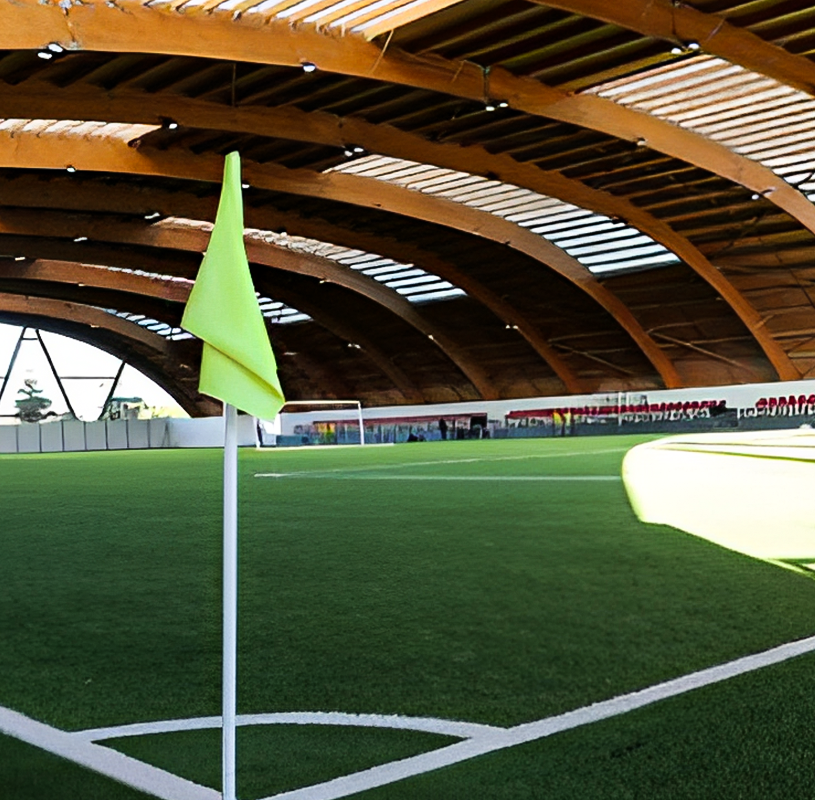
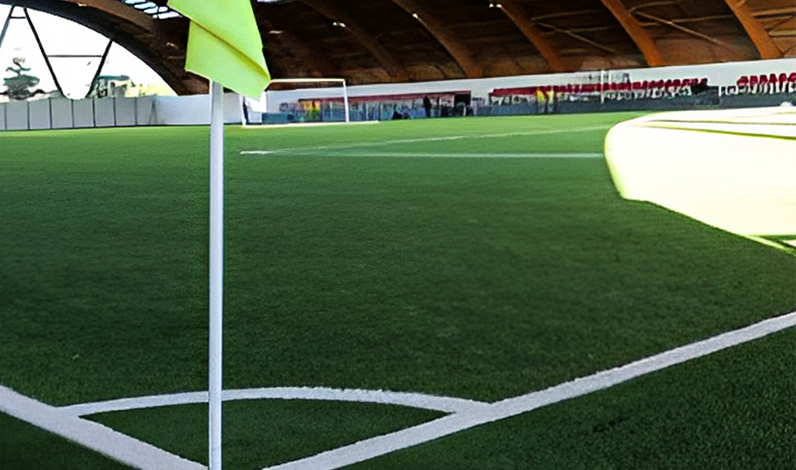
There can be no development without people and without an increase in skills. Morocco has understood this. Since his accession to the throne in 1999, His Majesty The King Mohammed VI has given a very special place to human development, women and young people. Ambitious strategies have been put in place, mobilising significant budgets for the construction of modern infrastructures and centres of excellence in all fields. In this Royal vision, sport occupies a place of choice.
Morocco is considered an African hub and a breeding ground for talent, not only because of its world-class sports facilities, such as the Mohammed VI Football Academy, the key to the success of the Moroccan national team at the Qatar-2022 World Cup, and the Grand Stadia, but above all because of the quality of the training and supervision of the players. The Sport-Etudes system of the Mohammed VI Football Academy has allowed several stars to emerge, such as : Youssef En-Nesyri, striker at Sevilla FC, Azzedine Ounahi, midfielder at Olympique de Marseille, Nayef Aguerd, defender at West Ham United or Ahmed Reda Tagnaouti, goalkeeper at WAC in Casablanca. Morocco is sharing its know-how and expertise with sister African countries. Coaches, referees and players regularly attend training courses in all areas related to sport.
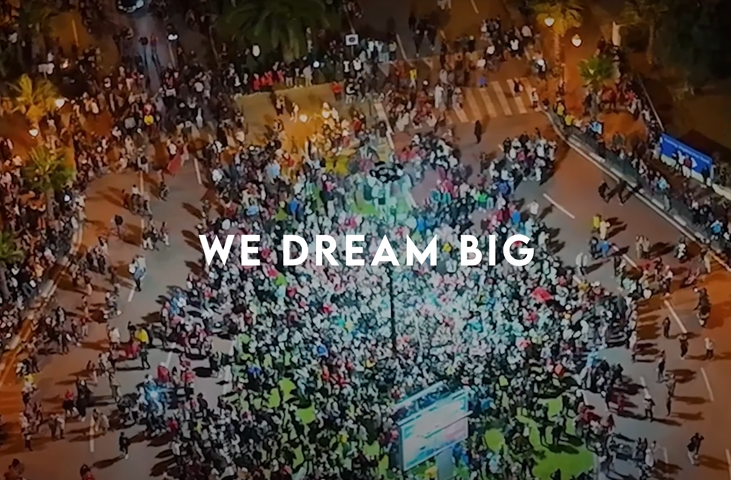
Visit Morocco: We dream big